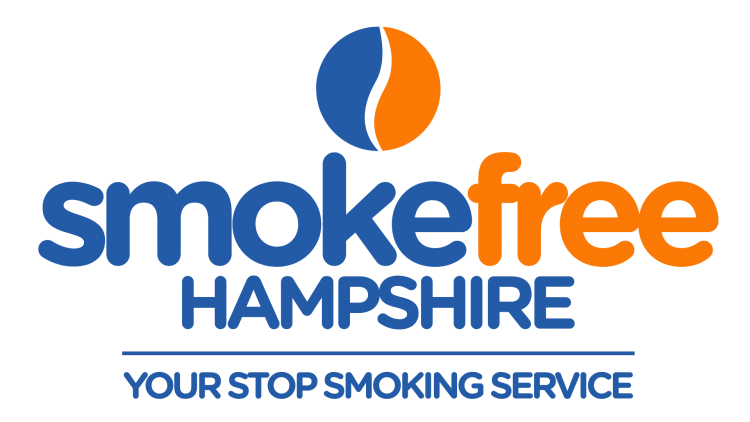WHy quit Smoking?
Just imagine your future without cigarettes – feeling great and having that extra money in your pocket. Stopping smoking can make a drastic improvement to your lifestyle and health in ways you might not expect. Once you stop smoking, you’ll experience immediate benefits as well as long-term improvements to your overall health.
Smoking is the main cause of Chronic Obstructive Pulmonary Disease (COPD). COPD is the name for a collection of lung diseases including chronic bronchitis, emphysema and chronic obstructive airways disease.
At least 4 out of 5 people who develop the disease are, or have been, smokers. The lining of the airways becomes inflamed and permanently damaged by smoking. This damage cannot be reversed. Around 10-25% of smokers develop COPD.
In Hampshire, around 9 out of 10 people diagnosed with COPD are smokers or former smokers.
COPD is largely a preventable condition. You can significantly reduce your chances of developing it if you avoid smoking.
If you already smoke, stopping can help prevent further damage to your lungs before it starts to cause troublesome symptoms.
If you’ve been diagnosed with diabetes, you will need to pay special attention to certain aspects of your lifestyle and health.
Diabetes doesn’t have to stop you from leading the life you want. Nor does it mean you’ll necessarily have other serious health problems in the future. If you do smoke, find support to help you stop. Smoking increases your risk of heart disease and stroke even further.
Smoking is now proven to be an independent risk factor for diabetes, and amongst diabetics it increases the risk of complications.
Diabetes complications already include heart disease, stroke and circulation problems. Smoking adds to the risk of developing all of these things. In some cases, smoking can double the likelihood of these conditions, as well as doubling the chances of suffering from kidney problems and erectile dysfunction.
For type 2 diabetics, the major cause of death is cardiovascular disease.
Coronary heart disease (CHD) is usually caused by a build-up of fatty deposits on the walls of the arteries around the heart (coronary arteries).
The fatty deposits, called atheroma, are made up of cholesterol and other waste substances.
The build-up of atheroma on the walls of the coronary arteries makes the arteries narrower and restricts the flow of blood to the heart. This process is called atherosclerosis. Your risk of developing atherosclerosis is significantly increased if you smoke.
Stopping smoking is the single best thing you can do for your heart health, and the good news is that the risk to your heart health decreases significantly soon after you stop.
Stop before the Op
One of the most important things you can do to speed up your recovery is to quit smoking. You may be having surgery in the coming months and now is the time to be thinking about stopping smoking before your operation.
Within the first hour, your blood pressure and pulse will return to normal. After eight hours the level of carbon monoxide in your blood will half and your oxygen levels will return to normal. After 24 hours the carbon monoxide leaves your body and within 48hrs your body is nicotine free. After just a few weeks you will start to notice your food tastes better, your lungs are clearer and you have more energy. Within 12 weeks your circulation is now improved throughout your body.
How long before the Op should you stop?
The sooner you stop before the op the better. Research suggests that stopping one month before surgery can make a great difference to the speed you recover and get back to good health. Ideally you should aim to stop smoking eight weeks before your surgery as this greatly reduces the risk of you developing complications. Smokers have one in three risk of developing post-operative chest infection. This can be reduced to one in ten if you stop eight weeks before your operation. We appreciate it is not always possible to give up in advance of your op especially for those undergoing emergency surgery, however giving up smoking for just a few days can make a big difference to your recovery as carbon monoxide and nicotine are cleared from your body within 48 hours.
Benefits of giving up smoking pre-op
- Smokers normally require more anaesthetic than normal. Stopping before your surgery will mean you will require less anaesthetic and this will help speed up your recovery.
- Less time spent in the recovery room and less need for oxygen therapy.
- There is less likelihood of you developing a chest infection following surgery.
- Wounds will heal more quickly. Smoker’s wounds take longer to heal due to the reduced amount of oxygen circulating in the blood and the effect of nicotine on the production of essential healing chemicals.
- There is a lower risk of developing dangerous blood clots after surgery.
- Less need for pain relief
What Happens To Your Body When You Quit Smoking?

How Much Do You Spend on Smoking?
You can calculate how much money you spend on cigarettes each month by entering the cost of your preferred packet of cigarettes and the number you smoke each week.
Registered Office
Smokefree Hampshire,
Grove House,
Lutyens Close,
Chineham Court,
Basingstoke,
RG24 8AG
Telephone
01264 563039 or 0800 772 3649
Smokefree Hampshire is your local stop smoking service commissioned by Hampshire County Council.




